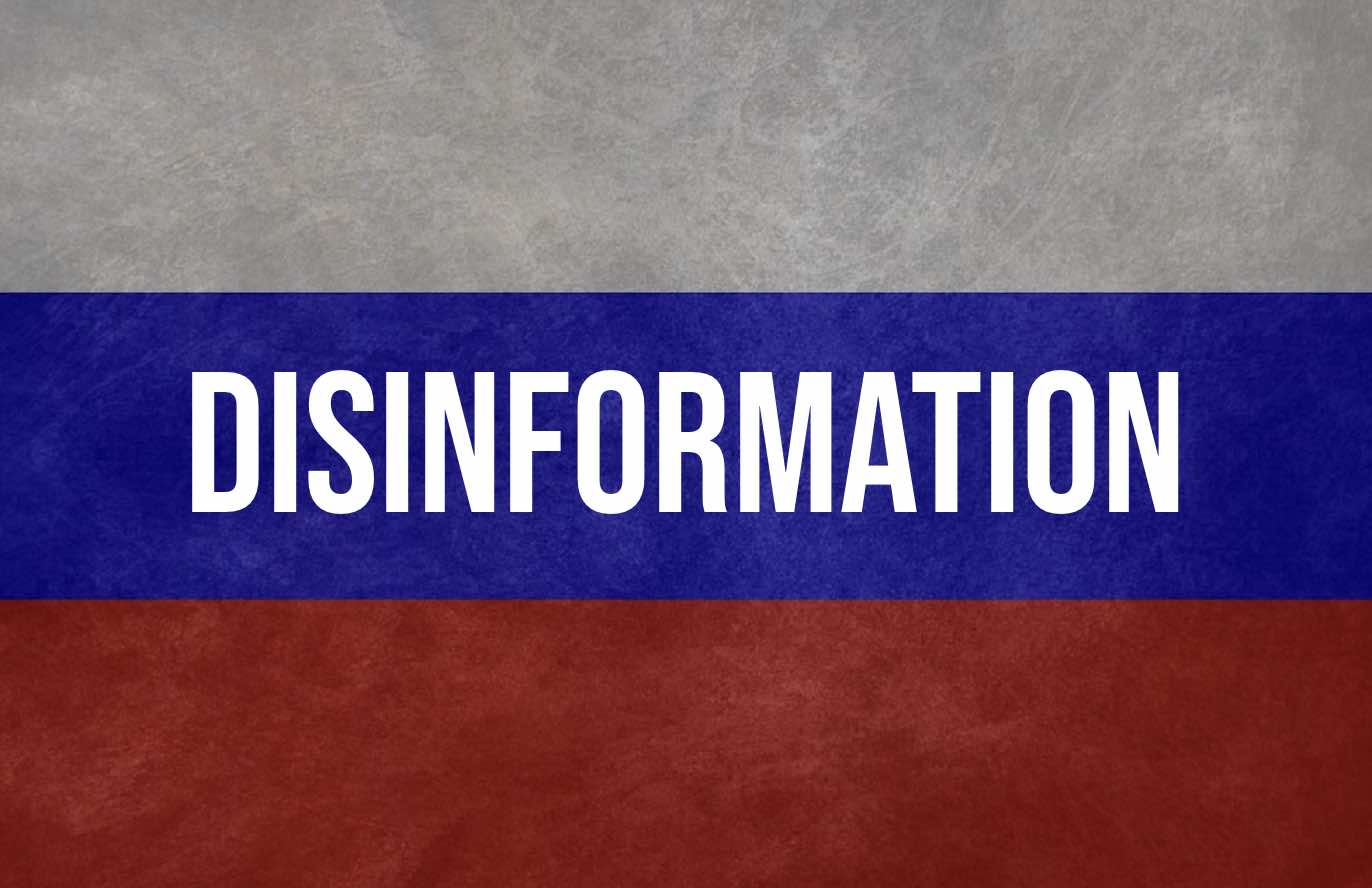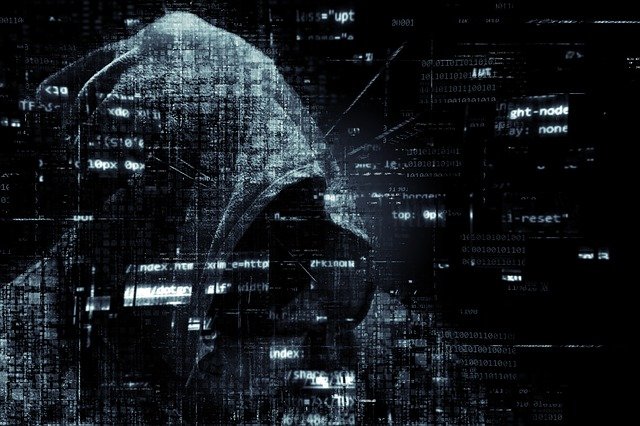

Welcome to this week’s edition of The Intelligence Brief… in the weeks leading up to the November U.S. election, Russian disinformation efforts have been on the rise. In our analysis this week, we’ll be looking at 1) recent revelations involving online groups linked to Russia and their dissemination of pro-Kremlin disinformation, 2) tactics leveraged by the Storm-1516 group against Western audiences, 3) the key role of AI and other technologies in these propagandistic efforts, and 4) the threats such disinformation pose, as well as how they can be combatted.
Quote of the Week
“Russia has meddled in our society and tried to sow discord for decades. Really what we’re seeing is just more tools in the toolbox.”
– U.S. Attorney General Merrick Garland
Latest News: In recent news from The Debrief, for the first time, scientists have produced an eerie soundscape of a mysterious magnetic field reversal event that occurred on Earth 41,000 years ago. Also, scientists say lightning strikes may be releasing deadly high-energy “killer electrons” that can fry electronics and humans. You’ll find links to all our recent stories at the end of this week’s newsletter.
Podcasts: In podcasts this week, on the latest installment of The Debrief Weekly Report, Kenna and Stephanie discuss the reversal of Earth’s magnetic field 41,000 years ago, before touching on a robotic technology being developed in China. Meanwhile over on The Micah Hanks Program, this week we examine the latest purported UAP whistleblower claims involving “Immaculate Constellation,” an alleged U.S. unacknowledged special access program. You can find all our past episodes over on The Debrief’s Podcasts Page.
Video News: On the latest episode of Rebelliously Curious, Chrissy Newton is joined by Daniel Otis, a Canadian journalist who discusses his recent investigations into the shoot-down of an unidentified object in Canadian airspace last February. Be sure to check out other great content from The Debrief on our official YouTube Channel.
With that all behind us, it’s time to shift our focus over to the latest revelations involving Russian disinformation and the use of propaganda to impact the West in advance of the U.S. 2024 election.
Russian Disinformation Targeted Western Audiences: Report
A Russian disinformation group has been actively leveraging AI and other manipulative techniques, including the use of faked audio, imagery, and documents, to disseminate disinformation to Western mainstream audiences.
This, according to a recent bombshell NBC News report, which details the actions of Storm-1516, a shadowy Russian group that has produced fake videos featuring actors posing as alleged whistleblowers who spun false narratives involving everything from the War in Ukraine, to claims involving the candidates in the 2024 U.S. election.
Although many of the claims promoted by the group’s videos were debunked before they gained traction, some of the fabricated stories managed to reach a wider audience, all of them promoting narratives aimed at potentially helping advance Moscow’s military and political objectives.
However, the new revelations about Storm-1516’s role in seeding pro-Russian propaganda are just one area where false narratives and questionable claims have emerged in the weeks prior to Americans heading to the ballot box in November.
Storm-1516: What We Know So Far
Since last fall, close to 50 instances involving false narratives that are likely linked to Russian propaganda have been identified. Several of these efforts, which include actors posing as purported whistleblowers, appear to target Western support for Ukraine’s defense, while others focus on political efforts that include the re-election of former U.S. president Donald Trump.
Several of the efforts have been linked to groups like Storm-1516, a pro-Kremlin outfit characterized as a “troll farm” that leverages social media and other outlets online for the dissemination of Russian propaganda. Among the groups activities outlined in the recent NBC News coverage were false accusations alleged against Vice President Kamala Harris, the current Democratic Nominee, as well as claims of a CIA plot against Donald Trump.


Beyond U.S. politics, one video linked to the group claims to feature testimony from a “whistleblower” who asserts that Ukrainian leaders had squandered money from U.S. aid for the purchase of yachts, none of which were ever purchased. Despite active efforts to expose the false claims, in several instances they have managed to reach prominent figures that include members of Congress and other officials.
Amplification of False Narratives with AI and Other Technologies
A key component of the recent efforts involves the use of artificial intelligence (AI) and other sophisticated technologies to bolster the reach of false narratives. Bot networks operating on social media were also a prevalent component of the recent disinformation attempts.
In April, an incident logged by the AI Incident Database, which documents events linked to harmful activity associated with the deployment of various AI systems, reported that Storm-1516 had used a fake AI rendering of an alleged individual in Kyiv named “Olesya” that claimed to be involved with efforts in support for President Biden in the U.S. election.
“This disinformation campaign aimed to mislead voters, erode trust in democratic institutions, and influence the 2024 election,” read a portion of a summary of the incident featured at the AI Incident Database website, adding that the incident may also have included involvement from “individuals linked to Valery Korovin, and potential veterans of the Internet Research Agency.”


In September, The Microsoft Threat Analysis Center reported on efforts by Russia and Iran that variously targeted both major U.S. political parties in advance of the 2024 election, some of which involved “covert social media personas” and use of fabricated U.S. news websites.
In a posting at its blog, Clint Watts, General Manager with the Microsoft Threat Analysis Center, noted an apparent shift in such efforts since August, which now focused much of their efforts on the Harris-Walz campaign as a “strategic move by Russian actors aimed at exploiting any perceived vulnerabilities in the new candidates.”
According to the posting, several of the activities had been linked to Storm-1516 and another newer group, Storm-1679, which also appeared to shift its propagandistic efforts away from the 2024 Paris Olympic Games in favor of targeting the Vice President Harris. An example of this activity included a fake image of a billboard advertisement in New York featuring false claims about Harris which was viewed more than 100,000 within a four hour period following its appearance on Telegram.
Ongoing Concerns About Disinformation
Fundamentally, Moscow’s reliance on groups like Storm-1516 and others, paired with its leveraging the capabilities of social media, artificial intelligence, and sympathetic hacktivist outfits willing to aid in the dissemination of such false narratives, present increasingly problematic issues in the manipulation and control of information which, as recent reporting shows, often does make its way to large Western audiences.
Such propagandistic efforts targeting the U.S. are nothing new, and similar efforts have been reported by other Western nations, illustrating the global scale of disinformation operations carried out by Russia, as well as countries like Iran and China. It can be expected that similar disinformation efforts will only increase in advance of the November U.S. election.
Amid such concerns, implementing strategies to help reduce the spread of false information and help to raise awareness of the potential threats disinformation poses remain significant.
At a recent news conference, U.S. Attorney General Merrick Garland characterized such Russian disinformation operations as being issues that have remained present for decades, but which continue to evolve as new technologies are implemented.
“It’s a bigger threat than it ever was,” Garland said.
That concludes this week’s installment of The Intelligence Brief. You can read past editions of our newsletter at our website, or if you found this installment online, don’t forget to subscribe and get future email editions from us here. Also, if you have a tip or other information you’d like to send along directly to me, you can email me at micah [@] thedebrief [dot] org, or Tweet at me @MicahHanks.


Here are the top stories we’re covering right now…
- Martian “Cryptic Terrain” Revealed by Receding Frost on the Red Planet’s South Pole
Images captured by the ESA’s Mars Express have revealed unexpectedly dark “cryptic terrain” as frost retreated on the Red Planet earlier this year.
- The Moon’s Phases Can Directly Affect Animal Behavior, New Research Reveals
Researchers from the Norwegian University of Life Sciences have shown that a full moon can have a direct effect on animal behavior.
- AI Sexbots Are On The Rise. Should We Regulate Them?
As AI sexbots are becoming more prevalent, researchers are concerned over how they will impact the future and the ethics of human sexuality.
- Our Sense of Smell is More Sensitive Than Previously Thought, New Research Shows
The human sense of smell has been underestimated, according to new findings that show how nuanced our noses really are at discerning scents.
- Hidden For Eons Beneath the Atlantic Ocean, Scientists Have Made a Smashing Ancient Discovery
New advanced imagery reveals the existence of a second impact following the event associated with the extinction of the dinosaurs.
- Scientists Uncover a Hidden “Sixth Sense” in Geckos, Prompting Questions About Human Extrasensory Potential
Scientists uncover hidden “sixth sense” in geckos, raising interesting questions about potential for human extrasensory capabilities.
- James Webb Space Telescope Confirms Existence of “Hidden” Mechanism Behind the Forging of Stars and Planets
New insights into the formation of gas streams that propel the growth of infant stars have been unveiled with the help from NASA’s James Webb Space Telescope.
- Engage! Newly Discovered Frogs that Sound Like Star Trek Sound Effects Named After Series’ Iconic Captains
Seven Madagascar frog species whose whistles sound like Star Trek sound effects have been named after the franchise’s most iconic captains.
- Positive Posts Trump Negative: New Research Surprisingly Reveals That Love Spreads Faster Than Hate in Politics
Research shows that positive in-party political messaging has far more impact and reach than negative out-party sentiment on social media.
- Reverse The Polarity! This week on The Debrief Weekly Report…
On this week’s episode, Kenna and Stephanie get flipped upside down discussing Earth’s magnetic field reversal. They then dive deep underwater to chat about a strange “Frankenstein” sea creature, and touch on a robotic finger developed in China.
- Moon Madness? Researchers Warn of Potential Rise in This Dangerous Activity During a Full Moon
A new study by researchers at Texas A&M University reports that vehicular collisions involving wildlife may increase by almost 46% during a full moon.
- Something is Missing from Deep Within the Ocean, Revealing New Clues to a 34-Million-Year-Old Mystery
Something scientists expected to find commemorating one of Earth’s most drastic periods of climate change apparently doesn’t exist, according to new findings.
- Experiments Show Harnessing Energy from ‘Superhot’ Rocks Deep Underground is Now Possible
New lab experiments show that it may now be possible to tap into renewable energy from superhot rocks deep underground.
- This Common Element Slammed Into the Earth Over 3 Billion Years Ago, and Allowed Life to Form
A new study examines how zinc from asteroids that crashed into Earth billions of years ago played a pivotal role in the emergence of life.
- James Webb Space Telescope Peers 13 Billion Years into the Past and Spots an Unusual ‘Inside-Out’ Galaxy
The James Webb Space Telescope has peered 13 billion years into the past and spotted an ancient inside-out galaxy.
- Scientists Unveil Haunting Soundscape of Mysterious 41,000-Year-Old Magnetic Field Reversal Event
For the first time, scientists have produced an eerie soundscape of a mysterious magnetic field reversal event that occurred on Earth 41,000 years ago.
- Lightning Strikes May Release Deadly, High-Energy ‘Killer Electrons’ That Can Fry Electronics and Humans
Scientists say lightning strikes may be releasing deadly high-energy “killer electrons” that can fry electronics and humans alike.
- New Study Suggests Impact of Hurricanes Helen and Milton Could Lead to a Rise in Violence Against Women
A new study reveals a troubling link between climate change and rising violence against women worldwide.
- The U.S. Space Force’s X-37B Will Soon Begin New Secretive Tests, Signaling Future Space Defense Capabilities
The U.S. Space Force’s mysterious X-37B space plane is about to test a series of novel maneuvers high above the Earth.
- SpaceX Launches Hera Planetary Defense Mission, Narrowly Escaping Hurricane Milton
SpaceX launched the European Space Agency’s Hera mission on Monday to provide scientists with tools to prevent catastrophic cosmic impacts.
- Beyond Human Achievement: How AI Challenges the Nobel Prize Paradigm
Harvard astronomer Avi Loeb looks at a potential future of the Nobel Prize in a world of machine-led discoveries.
- Archeologists Spar with Ancient Spears to Uncover Lost Combat Knowledge
A team of archaeologists recently explored prehistoric combat to shed light on how ancient warriors of the European Bronze Age fought.
- Misinformation Complicates Recovery Efforts in the Aftermath of Hurricane Helene
This week, we examine misinformation and conspiracy theories that have remained prevalent online in the aftermath of Hurricane Helene.
- Opinion: IMMACULATE CONSTELLATION? Could The Government Really Hide a Secret UFO Program?
A new whistleblower says the U.S. has a secret UFO program, which begs the question, could the government really keep that kind of secret?
- Cold War Spy Technology Captures Radioactive Lightning Storms
Two symbols of the Cold War, nuclear explosions and U2 spy planes combine in new storm research investigating “radioactive lightning.”
- Ancient Underwater Caves Reveal Tantalizing Clues about Early Human Expansion
Researchers studying ancient underwater caves on the coast of Sicily say they’ve found tantalizing clues about the area’s first inhabitants.
- Advanced Sense of Touch Makes This New Soft Robotic Finger More Successful at Medical Exams
A soft robotic “finger” with an enhanced sense of touch can perform routine doctor visits and find abnormal lumps and other ailments.
- These Weird “Frankenstein” Ocean Creatures Can Fuse Together as One Following Injury, Scientists Reveal
Scientists have discovered a comb jelly that can fuse together with others of the same species to combine as a single animal following injury.